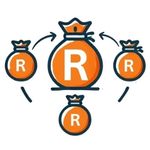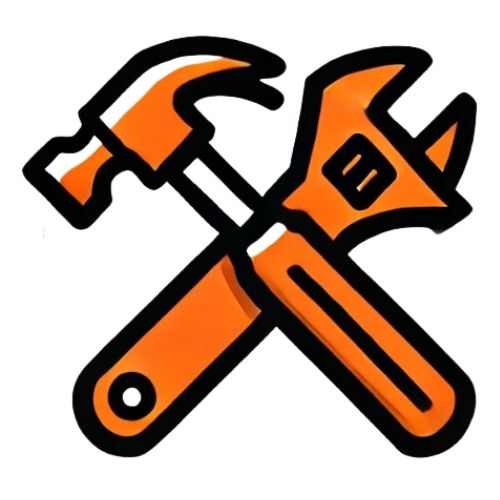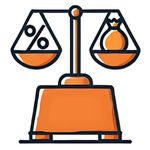
Buying a home is one of the biggest financial commitments most South Africans will ever make, and for the majority, this commitment is made possible through a home loan or bond. While property ownership provides long-term stability, it also places households under significant financial pressure, especially in an economy where costs continue to rise faster than incomes. With interest rate fluctuations, stagnant wage growth, increasing municipal charges, and persistent employment challenges, many families are finding it harder to keep up with their monthly repayments.
Key Takeaways
- Rising costs are squeezing households: Higher interest rates, slow wage growth, and rising living expenses such as food, electricity, and municipal charges are leaving many South Africans struggling to keep up with their bond repayments.
- Falling behind has serious consequences: Missed bond payments can damage credit records, trigger legal action that leads to repossession, and result in additional penalties and costs that worsen the financial burden.
- Early action is vital: Contacting lenders, being transparent about financial difficulties, and agreeing to realistic repayment arrangements can help homeowners avoid repossession and long-term financial damage.
When You Might Need A Bond

House Purchase
In South Africa, most buyers cannot pay for a home outright from their own savings, which means they rely on a loan from a financial institution. The process begins with an application to a bank or several banks to receive provisional approval for the loan and to be provided with an initial interest rate offer. Once a borrower is satisfied with the terms, the preferred bank is notified, after which income verification and a professional property valuation are carried out. If all the requirements set by the bank are fulfilled, the loan application is finalised by the attorney appointed to the transaction, who then ensures that the loan funds are used to complete the purchase of the property.
In such circumstances, obtaining the necessary bond should be included as one of the suspensive conditions within any formal offer to purchase.

Debt Consolidation
For many South African homeowners, a bond is often considered the most affordable source of capital when compared with other types of credit. When a homeowner has accumulated debt at high interest rates, it is sometimes possible to release a portion of the equity locked in the property to settle those debts. The application process for this type of refinancing is much the same as when buying a home, except in this situation, the property is already owned.
However, caution is needed with this approach, and professional financial guidance should always be sought. This is because the arrangement can extend the repayment term of the existing debt, which ultimately increases the total cost. In addition, there is the possibility of converting previously unsecured debt into secured debt, which carries additional risk.

Purchase Of An Additional Property
Due to the significant rise in property values in South Africa over recent years, many homeowners have accumulated substantial equity in their homes. This equity can, subject to the approval of the lender, be released and used either as a deposit or in some cases to fully finance the acquisition of a second property. Such a purchase may be intended as an investment property or as a holiday home.
It is advisable to proceed with care in these circumstances and to obtain specialist advice beforehand, so that the feasibility and the long-term costs involved are properly considered before making a final decision.

Home Improvements
A large number of property owners in South Africa purchase homes with the intention of renovating, extending or upgrading them. In these cases, equity held in the property may be released and directed towards funding the improvement projects, provided that the arrangement gains approval from the lender.
About Arcadia Finance
Secure your ideal loan through Arcadia Finance. Choose from 19 reputable, NCR-compliant lenders, pay no application fees, and enjoy a seamless process built around your financial priorities.
Understanding Bond Repayments
Before addressing how to manage overdue payments, it is useful to first clarify what a home loan and a bond repayment actually mean.
A home loan is funding provided by a bank that allows you to purchase a property. This loan is commonly referred to as a bond or a mortgage in South Africa.
The repayment of this loan takes place through monthly instalments, which are made up of two key elements:
- Principal amount: This represents the original sum borrowed from the bank in order to buy the home. Each month, a part of your repayment reduces this outstanding balance.
- Interest: This is the charge applied by the bank for lending you the money. It is calculated as a percentage of the remaining principal and forms a significant part of your instalments.
At the start of the loan, the majority of your repayment is applied towards interest, while a smaller portion goes towards lowering the principal.
Over time, as the balance of the loan gradually decreases, the interest portion reduces and a larger share of each instalment is directed towards paying off the principal.
The final date on which the entire principal must be repaid is known as the maturity date.

Why More South Africans Are Struggling With Bond Repayments

Rising Interest Rates and the SARB Decisions
The South African Reserve Bank’s adjustments to the repo rate directly affect the prime lending rate, which in turn raises or lowers home loan repayments. Although the repo rate has eased slightly in 2025, many households are still carrying the weight of earlier increases that pushed monthly instalments up significantly. For borrowers, even a one percent change in the interest rate can result in hundreds or even thousands of rand being added to their monthly bond repayment, creating strain for families already living on tight budgets.

Stagnant Wages Versus Rising Household Costs
While debt repayments are rising, income growth has remained slow across much of the South African workforce. Many households find that salaries are not keeping pace with their financial obligations, particularly as living costs escalate. This gap between earnings and expenses means that more families are struggling to cover their monthly bond instalments, with limited room in their budgets to absorb even small financial shocks.

Inflation, Municipal Charges and the Hit on Disposable Income
Households are facing price increases on food, fuel, electricity, and insurance, while municipal rates and service charges continue to climb above inflation. For those in sectional title developments or estates, levies and shared service costs have also risen sharply. These added expenses reduce disposable income and leave less available for loan repayments, forcing many homeowners to choose between keeping up with essential services and staying current on their bond.

Employment Challenges in 2025 and Financial Instability
The employment market in 2025 remains volatile, with retrenchments, reduced working hours, and contract instability affecting income security. Those working in sectors vulnerable to economic shifts face sudden reductions in income, while informal workers and freelancers have inconsistent earnings that make regular repayments difficult. The combination of job insecurity and rising living costs creates ongoing financial instability, increasing the risk of default for many bond holders.
What To Do When Struggling To Pay Your Bond
| Section | Details |
|---|---|
| Get In Touch With Your Home Loan Provider | Ignoring missed payments will only worsen the problem. Some homeowners hope that a few skipped instalments will go unnoticed, but this approach makes matters worse and places the bank in a far less understanding position when it eventually intervenes. The better course of action is to contact your lender as soon as you recognise financial strain. Banks deal with such situations frequently, and they can provide structured solutions that may help you manage what is often a temporary setback. Although some banks can initially handle repayment enquiries through a call centre, in most cases you will be directed to a local branch where a consultant can review your circumstances in detail. It is often best to start with a phone call, which can then be escalated to the appropriate department or staff member. |
| Be Open And Honest About Your Circumstances | Full transparency with your lender is essential. When you approach the bank, you should provide documentation of your income, expenses, and any special conditions such as retrenchment that have led to your financial hardship. Avoiding the issue or falling into arrears without explanation will only reduce your chances of support. Lenders are far more willing to assist those who can demonstrate genuine financial distress and back it up with accurate figures. In most cases, proof of hardship will encourage the bank to work with you rather than against you. |
| Work With Your Bank To Find A Solution | Your lender benefits more from keeping you in your home than repossessing it. Repossession is costly and legally complex, and banks prefer to maintain clients and avoid lengthy legal proceedings. As a result, they often go out of their way to provide homeowners with realistic alternatives. Some home loan agreements already include credit insurance, which may cover instalments during periods of financial difficulty. If no such cover is in place, many lenders still offer compromises such as temporary payment holidays or restructuring of the loan terms to make repayments more manageable. |
| Understand The Long-Term Effects On Your Bond | Any change to repayment terms has long-term financial consequences. Postponing or reducing payments will increase the total interest payable over the life of the loan. While this is still better than losing the property, it is not a decision to make lightly. Homeowners should continue to prioritise bond repayments and contribute as much as possible, rather than relying too heavily on debt restructuring and potentially creating a larger financial burden later. Before signing any amended agreement, ensure you fully understand the numbers and ask about other options if the arrangement seems unsuitable. |
| Stick To Your New Agreement | Once a new repayment plan is agreed, you must adhere to it. The bank will have taken steps to assist you, but failing to keep your side of the arrangement may leave you in an even more precarious position. If you default again, the lender is unlikely to be as accommodating the second time. Any new arrangement is legally binding, and non-compliance can lead to serious consequences. If you have any uncertainty about whether you can maintain the agreement, raise these concerns before signing and discuss other potential options with your lender. It is far better to adjust terms at the outset than to breach an agreement later. |
Conclusion
Bond repayments are becoming increasingly difficult for many South African households as interest rate changes, stagnant wages, and rising living expenses continue to apply pressure. Falling behind on payments carries severe consequences, including credit score damage, additional costs, and the risk of repossession. However, homeowners are not without options. By acting early, engaging openly with lenders, and seeking structured solutions, it is possible to protect both financial stability and home ownership.
Frequently Asked Questions
The first step is to contact your bank immediately rather than missing a payment. Most lenders have departments dedicated to assisting clients in financial distress and may offer restructuring options or temporary payment relief.
There is no fixed number, but once arrears accumulate and no arrangement is made, a bank can initiate legal action. This process involves formal notices, court applications, and, if unresolved, repossession and auction of the property.
Yes, even a single late or missed repayment can be reported to credit bureaus. This may reduce your credit score, which makes it harder to qualify for future loans and may result in higher interest rates if approved.
Yes, a debt consolidation loan can combine multiple debts into a single repayment, often at a lower rate. This can free up income to cover bond repayments, but it should be approached carefully and through an NCR-licensed provider.
Yes, selling the property before repossession is often a practical alternative. It allows you to settle the outstanding balance and avoid legal costs and the damage to your credit record that comes with forced sales.




